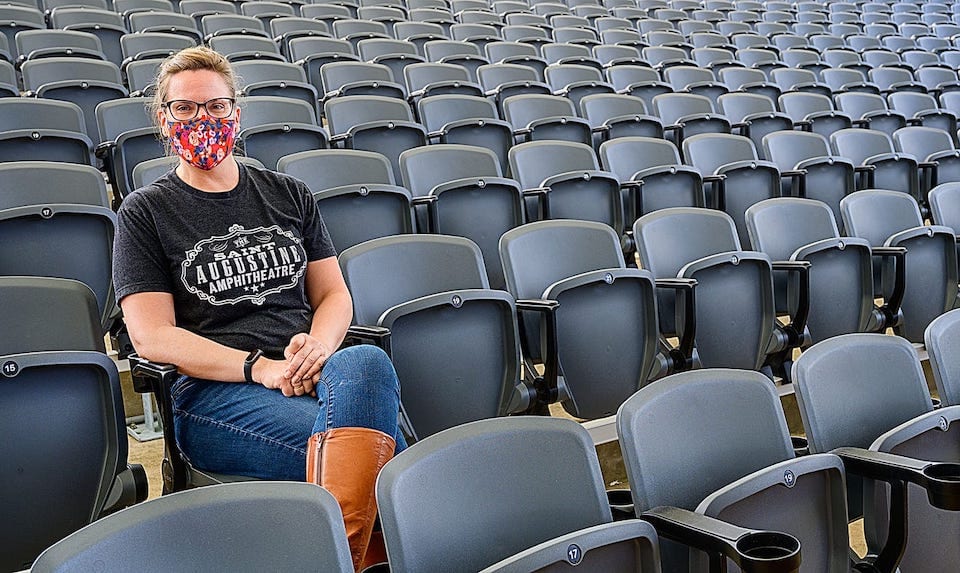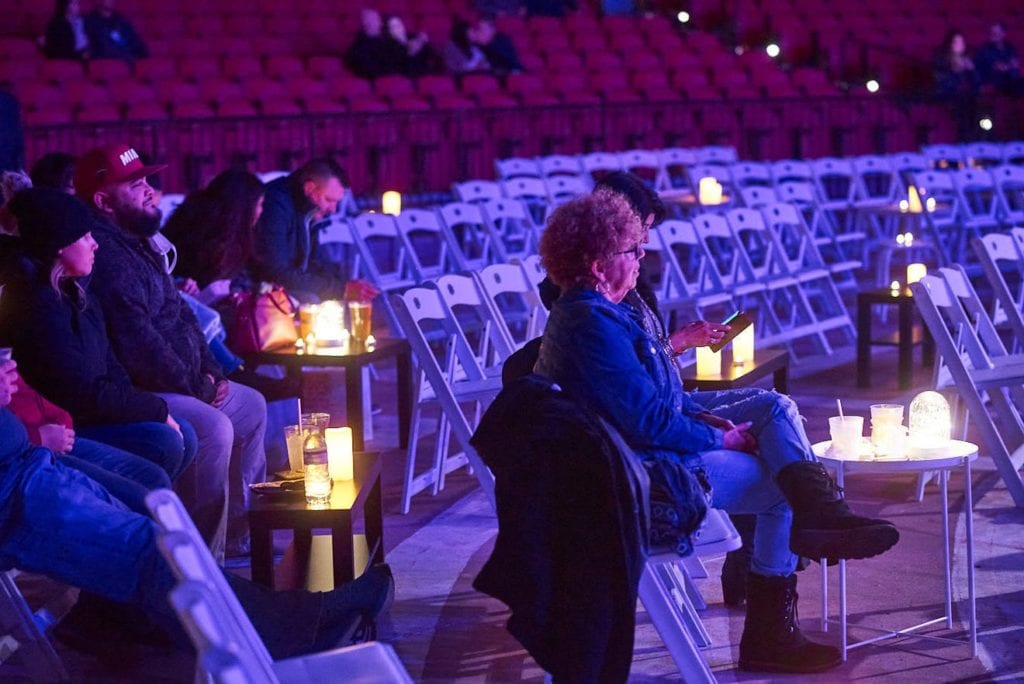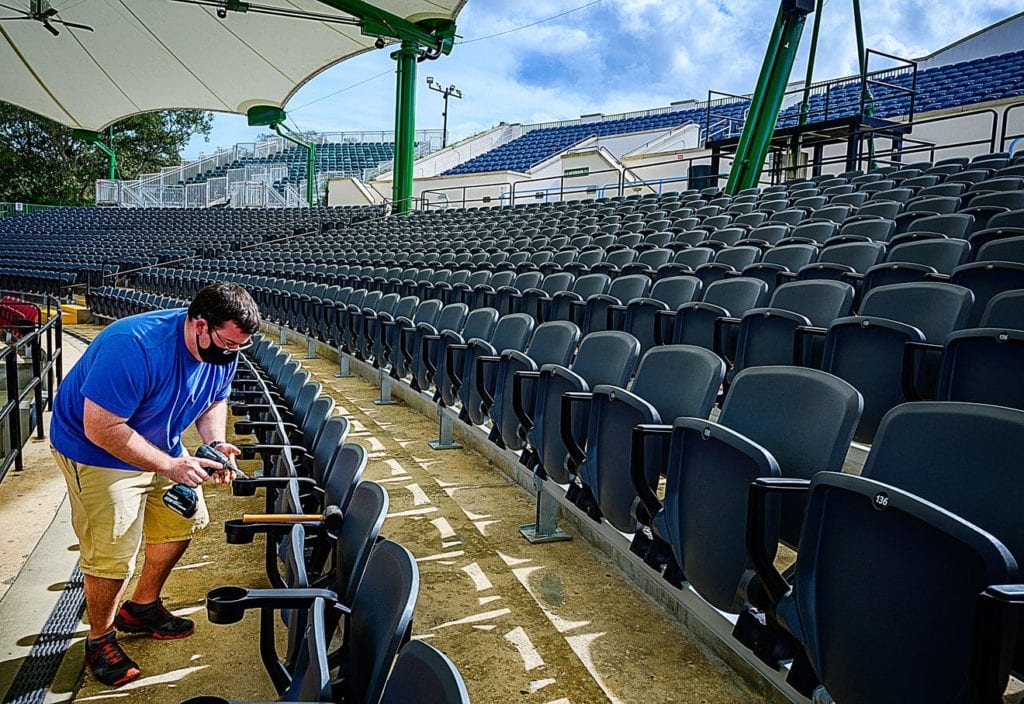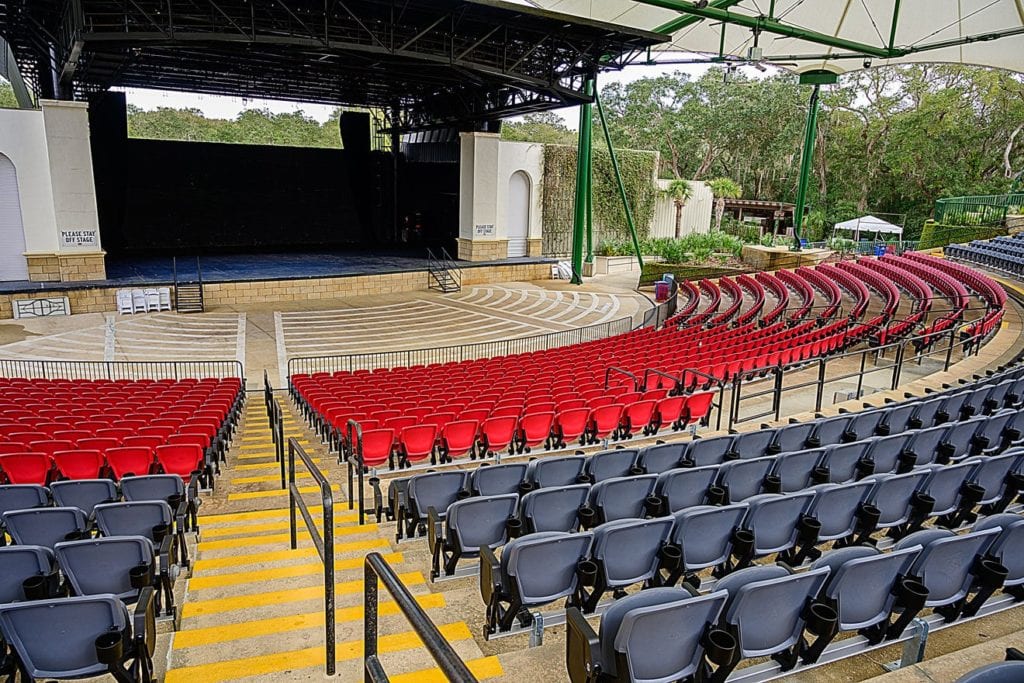
www.staugustine.com • Press Release – updated: Jan 25, 2021
Just over a week ago, the St. Augustine Amphitheatre launched a “partial capacity reopening” with two back-to-back shows featuring soul-rock band JJ Grey & Mofro, and so far reaction has been very positive, according to the venue’s leadership team.
“If everyone who comes in wears a mask and follows the rules, we can keep having events, which is good for everyone,” said Dianya Martkovits, a spokeswoman for The Amp. “As long as we can protect everyone that comes here, we can keep doing this.”
The partial reopening allows for 35% capacity — or 1,700 of 4,700 seats — at live performances. The JJ Grey shows were sold out for both Jan. 15 and 16, which was what concert organizers were hoping for.
“We’ve worked with JJ Grey a lot in the past — they’re local favorites — and this was kind of a first for them, and for us,” said Gabe Pellicer, general manager for The Amp and the Ponte Vedra Concert Hall.

Pellicer said the band has played just a handful of smaller venues since the coronavirus pandemic began closing down public events in March 2020; the amphitheatre has not had live music since then.
For the partial capacity shows, seats are sold in blocks of two to eight and then each of the groupings, or “pods,” of guests are spaced at least 6 feet from one other. The venue installed new seats that can lock out-of-use seating, and new signage will soon mark seats that are available.
Shows are booked out just 30 days in advance, Pellicer said. The shorter window allows both guests and organizers to plan more closely up to a show, taking into account their own health and local patterns in caseloads.
Pellicer said a survey of guests at the JJ Grey concerts returned favorable feedback to the setup.
“People said they felt safe, they had fun, and that it was so good to be able to enjoy live music again,” Pellicer said.
Guests are required to wear masks upon entering the amphitheatre, when traveling to their seats and any time they leave their seats for the restroom, concessions or any other reason.

“The first night it took a little getting used to — some people forgot their masks at their seats — but we have masks and sanitizers placed at stations all around so it was just a matter of reminding them,” Pellicer said.
Markovits said guests have been receptive to the friendly reminders.
“It’s all about communicating,” she added.
For example, a guest whose temperature registers at 100.4 degrees or higher is not immediately ushered out. Amphitheatre staff instead guide them to a private medical station where they are asked about factors other than the virus that may be at play, such as whether they were just in the sun or if their bodies normally present higher temperatures, Markovits said.
The amphitheatre received $1.5 million through federal Coronavirus Aid, Relief and Economic Security (CARES) Act funding distributed by St. Johns County for upgrades to improve public safety at the outdoor venue. A majority was spent on the new lockable seats; industrial-strength, high-speed fans which better circulate air; signage advertising hygiene and social-distancing protocols; mobile ticket scanning machines; and products like microbial protection sprays.

The Amp is also using a system called FanFood, which allows guests to order food and beverages through an app that alerts them when to pick up their refreshments at the concession stand.
Markovits said making sure people are kept safe and healthy is in everyone’s best interest, including the performing artists themselves. In addition, the venue employs at least 200 staffers who have not been able to collect paychecks throughout the pandemic.
The next two partial capacity performances announced for the St. Augustine Amphitheatre are the Allman Betts Band on Feb. 6, and Aaron Lewis on March 6. The hope is that the venue will be able to add more shows by May after the initial test run.
“Part of our job in this, really, is educating people about the new rules so they can get used to the changes,” Pellicer said.
